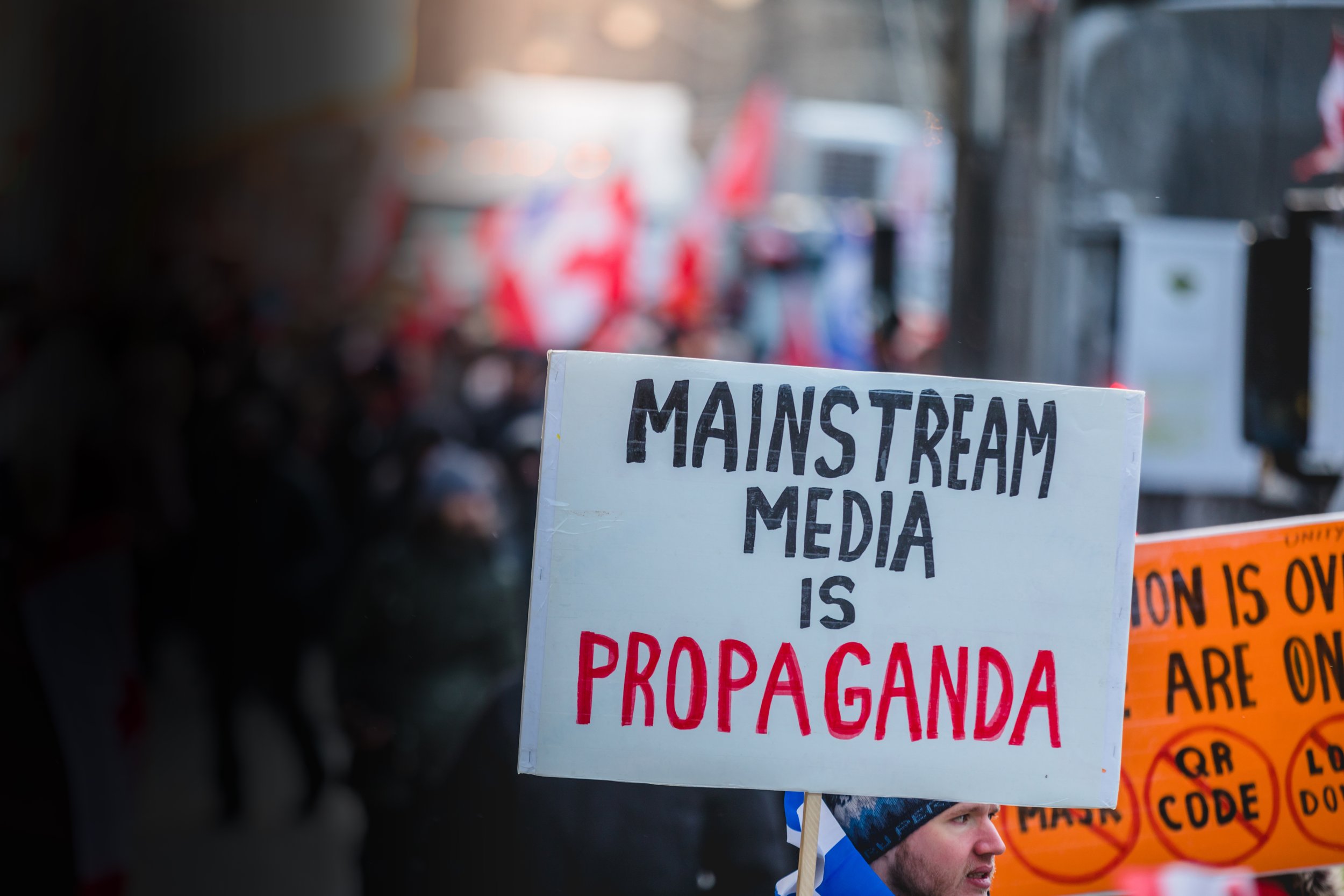TAKING CARE REPORT
The Taking Care survey set out to capture the state of Canadian media workers’ mental health and well-being.
What we found is an industry struggling to cope with job stress and exposure to trauma.

THE COVID-19 EFFECT
Media workers have spent the past two years reporting on the widespread impacts of a deadly virus, all while trying to navigate their own fears, isolation and uncertainties. In return, media workers have become targets to an anti-vaccine movement intent on causing workers personal or professional harm.
No media worker was immune from the COVID effect, but some reported greater degrees of stress, including women, people under 50 years old and Asian, Black and Indigenous workers.
Photo courtesy of Canadian Press

“It is taking more of a toll on me than interviews with trauma victims. I believe in what we do and that has always carried me through, but when it feels like so many other people no longer believe in us, it’s discouraging.”
“Very few employers offered PPE or had conversations about safety and what support they would provide if we contracted COVID on the job. I lost basically all my income because I would push back and question employers’ safety practices.”

TRAUMA EXPOSURE/
WITNESSING
Media workers routinely run toward conflict, toiling among the details and graphic imagery of war, murder, sexual violence, humanitarian crises, natural disasters and other crimes and calamities. The fast pace of our work makes it tough to properly process all that we witness on the job. A lack of acknowledgement and support are damaging Canadian media workers’ mental health and overall well-being. In Taking Care, we measured exposure levels and the consequences of witnessing so much human suffering.
Photo courtesy of Canadian Press

SELF-REPORTED RATES OF ANXIETY AND DEPRESSION
“Because of the nature of the work, we don’t get time to feel human emotions while we’re reacting, and sometimes it hits really hard after a shift. There are some events I’ve covered as a video editor that I will never unsee or forget.”
ANXIETY
DEPRESSION

WELL-BEING AT WORK
Canadian media workers’ overall job satisfaction is high. In spite of the consequences, we are fortified by our mission to inform the public. But we’re only capable of so much — and it’s often our well-being that gets left on the cutting room floor. Just one quarter of Taking Care respondents said their mental well-being was good, with rates of anxiety, depression, post-traumatic stress and high-risk drinking greatly exceeding Canadian averages.
Photo courtesy of Canadian Press

“My employers can act like they are ‘there’ for me but if they cannot provide [me] with stable employment that is at a living wage, it becomes impossible to truly be ‘well.’”
REPORT HIGHER-RISK DRINKING
ARE HEAVY DRINKERS

WORKPLACE CULTURE
& SUPPORT
Media workers across Canada painted a dire picture of an industry-wide workplace culture that sometimes punishes those who decline work when the story is too graphic or upsetting, and which fails to deliver meaningful training to those whose job it is to report on trauma. Respondents were deeply affected by poor working conditions, a lack of constructive feedback and a pervasive sense that employers do not care about employees’ well-being. Some felt like taking time off was a sign of weakness or lack of commitment.

“I’m ashamed of feeling burnt out because I’m a relatively new journalist but this industry feels so unsustainable sometimes. News doesn’t stop and neither can I.”
HAVE SOUGHT OUT MEDICAL HELP TO DEAL WITH WORK STRESS AND MENTAL HEALTH

HARASSMENT
Even before the “freedom convoy” blockades, members of the media were already becoming a lightning rod for harassment and violence. Taking Care data shows that more than half of media workers are targeted, with women, non-binary and trans people, as well as people of colour, reporting alarming rates of harassment and violence.

REPORT ONLINE HARASSMENT AND THREATS
EXPERIENCED HARASSMENT IN THE FIELD
“The conditions of employment can often be more stressful than disturbing imagery encountered on the job. Deadlines, demanding supervisors, constantly shifting schedules and job insecurity are major contributors to daily stress.”
SPECIAL ISSUES
The Taking Care report takes a closer look at:
Discrimination against marginalized media workers
Alcohol and drug use among Canadian media workers
Issues affecting freelancers, casuals and others with precarious employment
Taking Care: A report on mental health, well-being and trauma among Canadian media workers
was written by Matthew Pearson and Dave Seglins, with Tracey Lindeman and Cassandra Yanez-Leyton,
in partnership with the Canadian Journalism Forum on Violence and Trauma
May 2022








